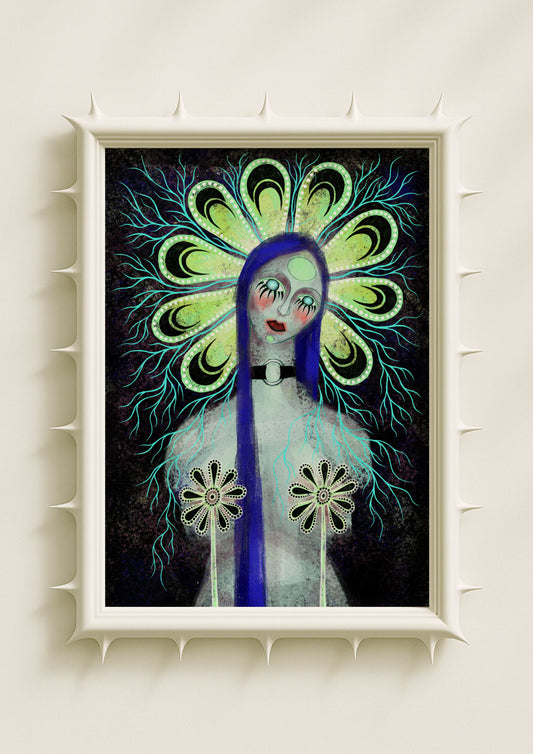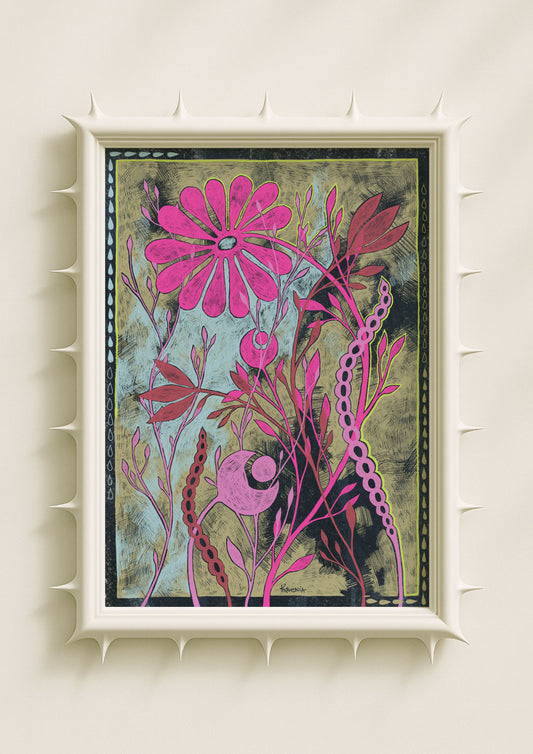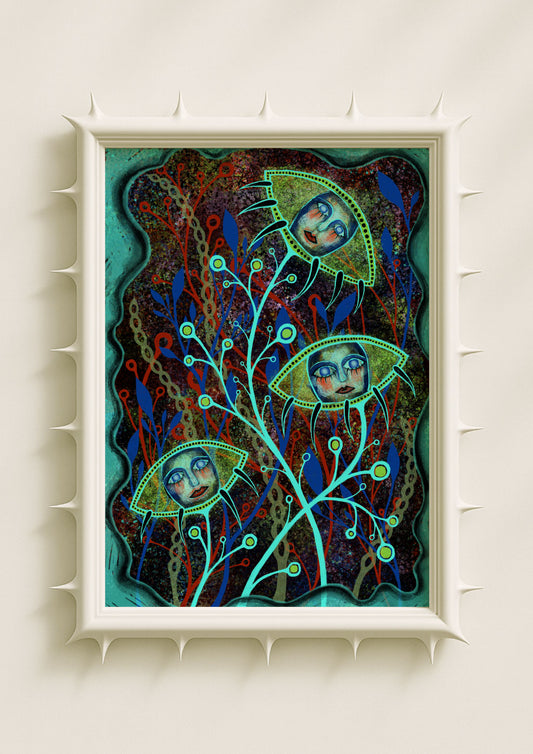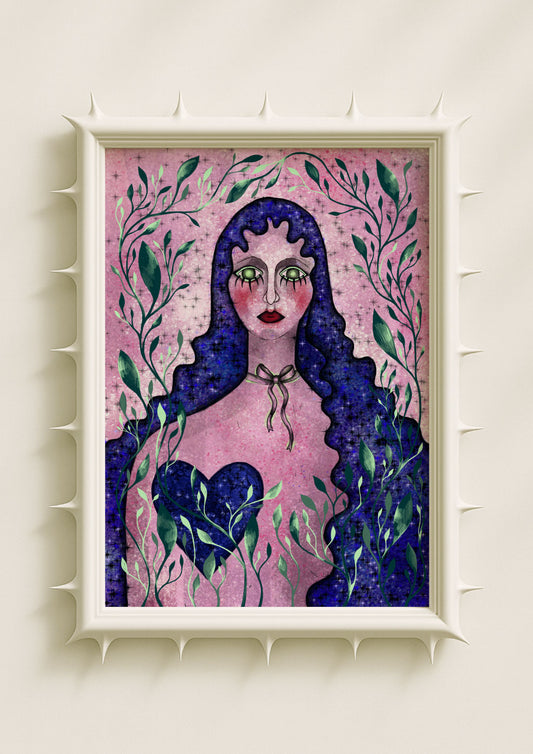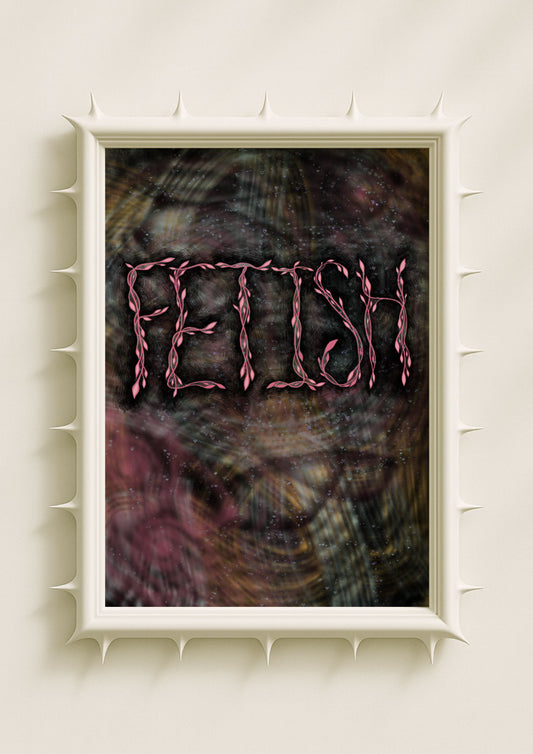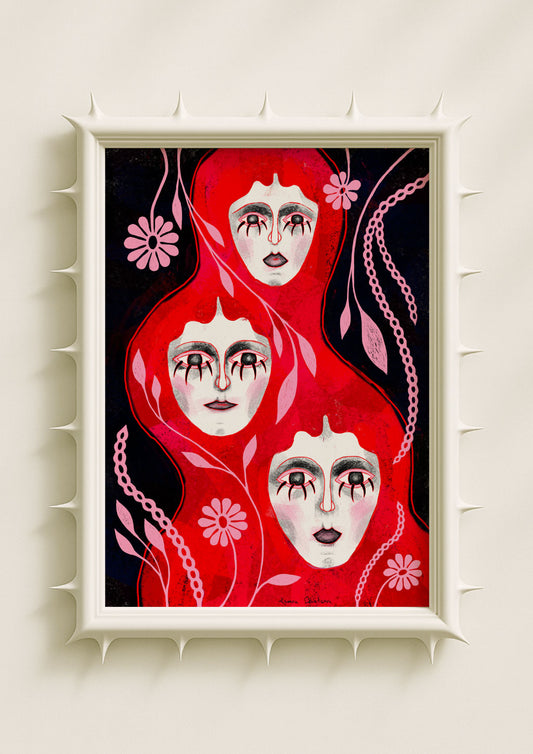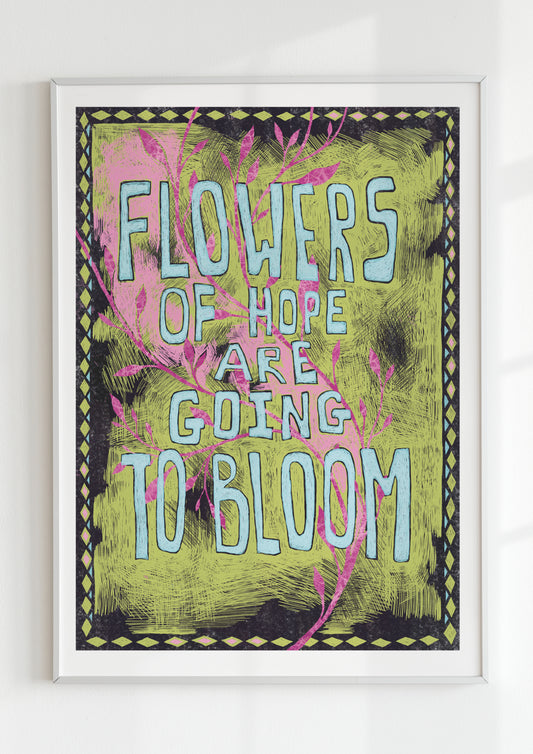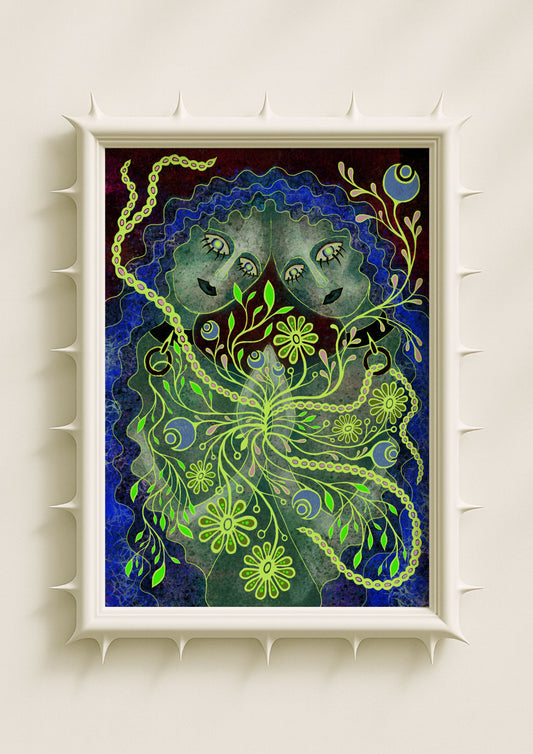The Quiet Power of Simplicity
Naive wall art holds a kind of honesty that feels rare in contemporary design. In spaces defined by sleek furniture and clean architectural lines, a naive poster brings something warmer — a reminder of touch, instinct and unfiltered emotion. Its shapes may be simple, but the feeling behind them is not. When I create naive-inspired prints, I try to preserve this softness, allowing the image to feel immediate, almost spontaneous, as if it appeared in one gesture. That spontaneity becomes a grounding force in modern interiors.

Playfulness That Doesn’t Feel Childish
There is a playfulness in naive art, but it never feels superficial. The charm lies in the looseness: a flower drawn slightly off-centre, a face made with bold outlines, colours layered without worrying about precision. These choices carry the freedom of intuition. In a home, this looseness introduces movement and lightness. A naive wall art print can brighten a quiet kitchen, soften a structured living room or bring warmth to a hallway. The playfulness becomes an atmosphere rather than a theme, and it settles surprisingly well into sophisticated spaces.
Sincerity Through Imperfect Lines
Imperfection is the soul of naive art. A line that wavers, a shape that tilts, a palette that feels hand-mixed — these elements reveal emotion more directly than polished, overly refined imagery. When I draw in a naive style, I let the hand remain visible. I don’t correct the hesitations; I let them speak. This sincerity resonates strongly in modern interiors, where many objects are manufactured, smooth and consistent. A naive poster breaks that uniformity with something human. It adds softness not by decoration, but by presence.

Why Modern Interiors Need Naive Imagery
Minimalist spaces can feel serene, but they can also feel distant. Naive wall art works as a counterbalance. It brings warmth without clutter and personality without noise. A simple floral motif or a stylised portrait hangs quietly yet transforms the room around it. The simplicity of the artwork opens emotional space: the viewer doesn’t feel pressured to interpret or analyse. They simply feel. And in many modern homes — full of screens, structure and constant input — that gentle emotional grounding is exactly what people crave.
Unexpected Sophistication in Primitive Forms
Naive art may look simple, but its impact can be remarkably sophisticated. A poster with naive botanical shapes can look elegant against a white wall. A stylised portrait with exaggerated features can feel modern and sculptural. The contrast between the artwork’s spontaneity and the interior’s clean lines creates a visual tension that makes the room feel layered and intentional. Even in luxurious settings, naive imagery holds its own through authenticity rather than refinement.

Colour as Emotional Light
Naive palettes are often intuitive and comforting: dusty reds, muted greens, warm ochres, gentle blues. These tones bring a soft emotional glow to a room. In my naive-inspired prints, I choose colours that feel remembered — like pigments from old books, embroidered fabrics or handmade ceramics. These palettes work beautifully in modern interiors because they soften the atmosphere without overwhelming it. The room feels calmer, more welcoming, more lived-in.
A Human Touch in a Modern World
What draws me most to naive wall art is its emotional straightforwardness. There is no attempt to impress, only to express. The imagery feels as if it comes directly from the heart, unfiltered by overthinking. And when such a poster hangs in a home, it brings that same sincerity into the space. It invites warmth, openness and emotional clarity. In a world where visuals can feel curated to perfection, naive art offers something grounding — a reminder that beauty often lives in what is simple, imperfect and deeply felt.
